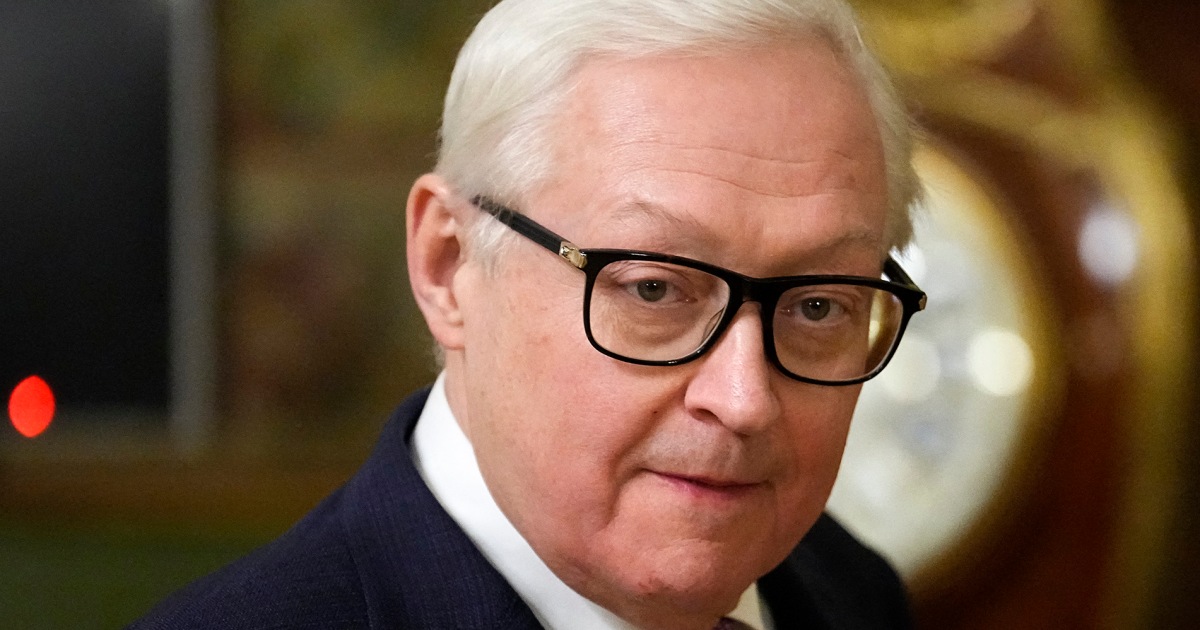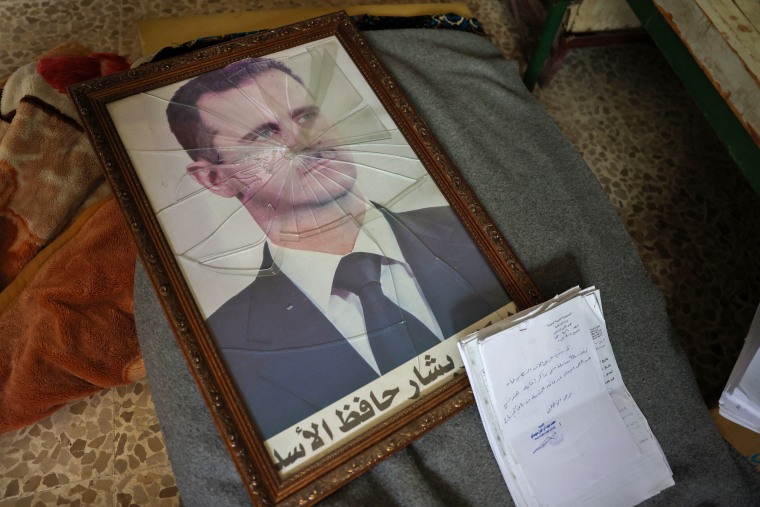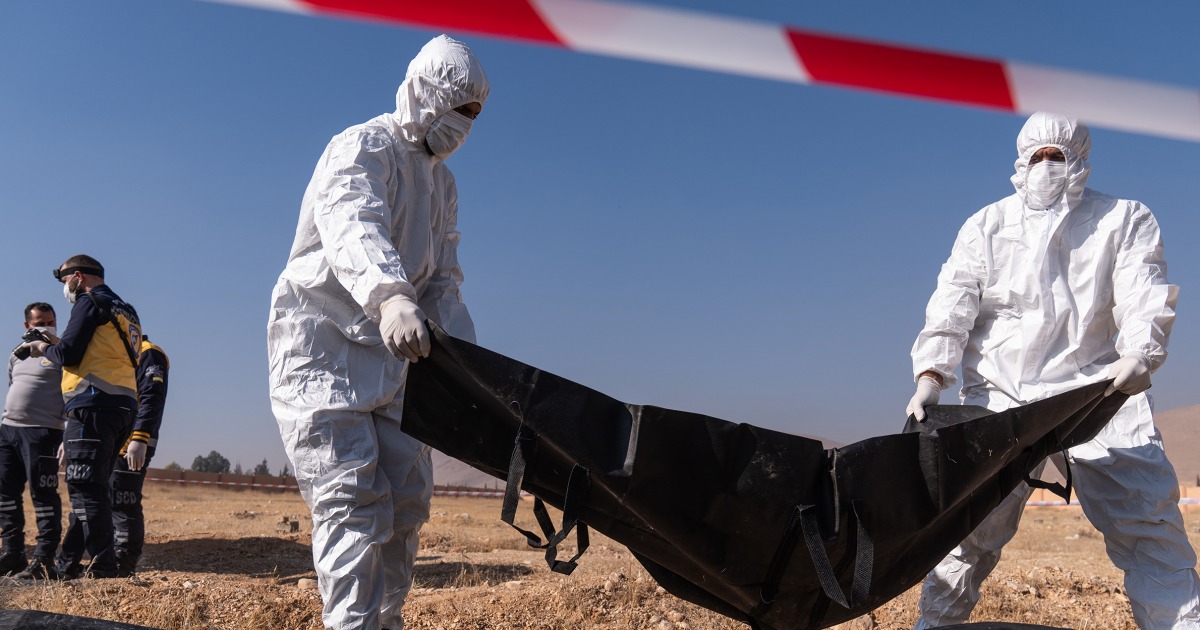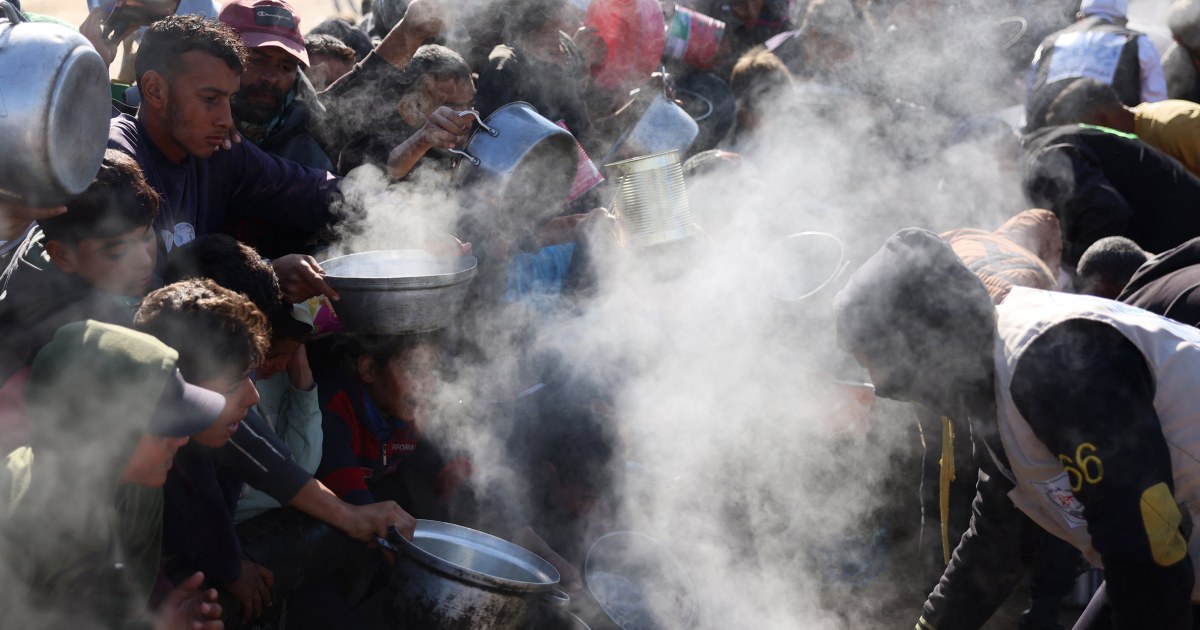World
Syria’s Assad is in Russia, Putin’s deputy foreign minister confirms to NBC News

Russia is providing sanctuary to Bashar al-Assad, having transported the former Syrian leader there “in the most secure way possible” after the swift collapse of his regime, Russia’s deputy foreign minister told NBC News in an exclusive interview Tuesday.
“He is secured, and it shows that Russia acts as required in such an extraordinary situation,” Sergei Ryabkov said, becoming the first Russian official to confirm Assad’s presence in the country.
“I have no idea what is going on with him right now,” Ryabkov said, adding that it “would be very wrong for me to elaborate on what happened and how it was resolved.”
Russian President Vladimir Putin has been dealt a huge blow by the collapse of a regime to which he gave his full support, helping Assad cling to power after Syria descended into civil war and maintain his family’s brutal dynasty, which began in 1971.
And Ryabkov said Russia would continue to support the Syrian leader whose regime has been accused by human rights groups, whistleblowers and former detainees of attacks with chemical weapons and barrel bombs and other war crimes, as well as murder, systematic torture and the enforced disappearance of tens of thousands of people since the 2011 mass uprising, which sparked that conflict.
“Russia is not a party to the convention that established the International Criminal Court,” Ryabkov said when asked if the Kremlin would hand over Assad for trial.
Syria has not joined the court, which is based in the Hague, Netherlands, and has not accepted its jurisdiction. Russia and China blocked an attempt to impose its jurisdiction in 2014. The United States and Israel also do not recognize the jurisdiction of the ICC, which has no police to enforce its warrants.
Separately, in March 2023, the court issued an arrest warrant for Putin for “war crimes” in overseeing the unlawful abduction and deportation of children from Ukraine to Russia.
And last month, the ICC issued arrest warrants for Israeli Prime Minister Benjamin Netanyahu and his former Defense Minister Yoav Gallant over alleged crimes against humanity and war crimes in Gaza. Israel rejected the charges and the U.S. said it rejected the decision.
Assad “was accused by the same group of countries and governments that continuously defeat attempts to live their own ways as it happened in Iraq, in Libya and in many more,” Ryabkov said, adding that it was “amazing, but it is also very revealing,” that the U.S. “configures its reaction and response” depending on whom the court is prosecuting.
Whoever ends up governing Syria, be it the Hayat Tahrir al-Sham (HTS) militant group, which led rebel forces as they stormed across Syria, or someone else, Ryabkov said, Russia “forcefully and strongly” believes that Syria “should be sovereign, unified and integral.”
“We will not have a situation there, hopefully, that will mean separation of parts of Syria from one another,” he added.

He also urged Israel “to seriously consider what is going on in the Golan Heights,” after Netanyahu ordered his military to seize control of the demilitarized and U.N.-patrolled buffer zone with Syria that was established under a 1974 cease-fire agreement. Israel, Ryabkov said, should observe that agreement and it should “not infringe” on Syria’s territorial integrity.
One thing Russia did share with the U.S. was concerns about the potential for the re-emergence of the Islamic State terrorist group in Syria, he said. The U.S. has launched multiple airstrikes on ISIS targets in Syria, where it maintains a small force.
On a separate matter, Ryabkov added that the Kremlin would “definitely be prepared to consider” another prisoner swap, similar to the one in August that resulted in the release of Wall Street Journal reporter Evan Gershkovich and three other U.S. residents from Russian captivity.
Deals like this required “a multiphased or multistep approach on both sides,” including in some cases, the pardoning of those serving sentences. Several other countries, including Germany and Slovenia, were involved in the deal mediated by Turkey.
While he did not “want to pre-empt anything,” Ryabkov said such deals help improve the relationship between Russia and the U.S., adding that a new deal would be “a healthy step forward, especially at the beginning of the next administration.”








